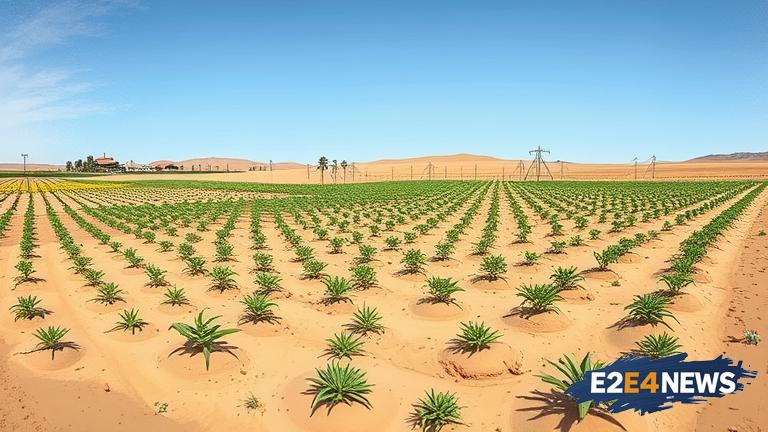Israel has long been a pioneer in agricultural innovation, and its latest endeavors in desert farming are no exception. The country’s agricultural sector has been working tirelessly to develop and implement new techniques to increase crop yields and promote sustainable agriculture in the desert regions. One of the primary methods being used is precision agriculture, which involves the use of advanced technology such as drones, satellites, and sensors to monitor and control crop growth. This approach allows farmers to optimize water and fertilizer usage, reducing waste and minimizing the environmental impact of farming. Additionally, Israeli farmers are utilizing advanced irrigation systems, such as drip irrigation, to conserve water and reduce evaporation. These innovative methods have already shown significant results, with some farms reporting increases in crop yields of up to 30%. The Israeli government has also launched initiatives to support desert farming, including the establishment of a new agricultural research center in the Negev desert. The center will focus on developing new technologies and techniques for desert farming, as well as providing training and support for farmers. Furthermore, the government has implemented policies to encourage the development of desert agriculture, such as providing subsidies for farmers who adopt sustainable practices. The use of renewable energy sources, such as solar power, is also being promoted to reduce the carbon footprint of farming. Israeli farmers are also experimenting with new crops, such as dates and jojoba, which are well-suited to the desert climate. The introduction of these new crops is not only providing a new source of income for farmers but also helping to promote biodiversity in the region. Moreover, the development of desert farming is also creating new job opportunities in rural areas, helping to boost local economies. The Israeli agricultural sector is also collaborating with international partners to share knowledge and expertise in desert farming. This collaboration is not only helping to promote Israeli innovation but also contributing to global food security. The use of advanced technologies, such as artificial intelligence and machine learning, is also being explored to further optimize desert farming practices. For instance, AI-powered systems can analyze data from sensors and drones to predict crop yields and detect early signs of disease or pests. The integration of these technologies is expected to revolutionize the agricultural sector, enabling farmers to make data-driven decisions and improve crop yields. Overall, Israel’s innovative approach to desert farming is a testament to the country’s commitment to sustainable agriculture and food security. As the global population continues to grow, the development of new agricultural technologies and techniques will be crucial in meeting the increasing demand for food. Israel’s desert farming initiatives are not only providing a solution to this challenge but also serving as a model for other countries to follow. With its unique combination of innovation, technology, and expertise, Israel is poised to become a leader in the global agricultural sector. The country’s agricultural sector is expected to continue to grow and develop, with a focus on sustainability, innovation, and international collaboration. As the world grapples with the challenges of food security and sustainability, Israel’s desert farming initiatives are a shining example of what can be achieved through determination, innovation, and a commitment to excellence.





